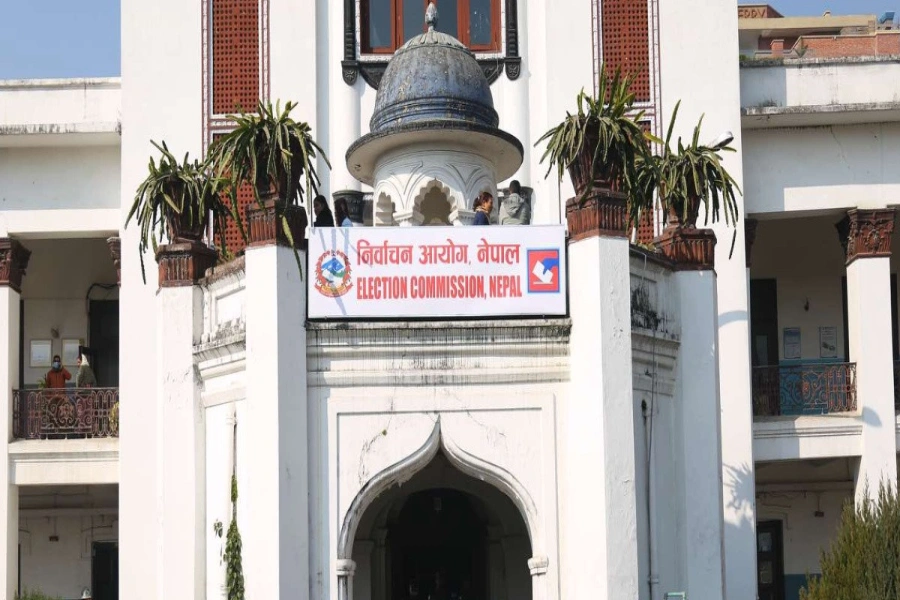The majestic peaks of the Himalayas are revered by the Sherpa community with utmost respect as locals consider the mountains to be the protector of their realm. For the Sherpas, who live on the laps of the towering peaks, the mountains are literally their ‘Gods’.
“We worship the mountains. They are our gods,” says Kazi Sherpa, who runs a hotel at Jorsalle in the Everest region. Sherpa explains that the Khumbu region, which harbors the world’s highest peak, Mt Everest, derives its name from Mt Khumbila, the holiest of all the mountains for the local inhabitants.
“The lowlands below Lukla are called Solu and the highlands above it are known as Khumbu,” says Sherpa, who fetched silver medal for Nepal during the South Asian Judo Championship in the 80s.
It is forbidden for anyone to climb Mt Khumbila although is just below 6,000 meters and easily accessible. Khumbila, which stands atop the famous Namche Bazaar, is considered as the main deity among all the mountains.
“Khumbila is our ‘Kul Devta’, the protector god of our clan,” asserts Sherpa, adding, “We Sherpas are not supposed to climb any mountain as it would be tantamount to stepping on the heads of our gods.”
Sagarmatha Sambaad: Nepal calls for global action to protect mo...

Even crossing the tree line is forbidden, according to the holy books of the Sherpas. Breaching the code would result in ‘La-duk’ or mountain sickness caused by the wrath of the gods.
“The place above the tree line has been set for the gods and below it is for the humans,” explains Sherpa referring to the holy scriptures.
But the sacred tradition has long been broken with humans venturing into the forbidden lands since the dawn of the 20th century, resulting in the turning of a pious place into a junkyard.
Human activities high up in the mountains have adversely affected the environment of the Himalayas, according to Sagarmatha Pollution Control Committee (SPCC).
“In the 1980s, Mt Everest was considered as the worst polluted place in the world. There were calls for closure for the mountain so that its natural eco-system would not be disturbed by human activities,” says SPCC Chairman Ang Dorje Sherpa, adding that the pollution control measures were taken after the outcry and the SPCC was subsequently formed in 1991.
Despite the relentless efforts of the SPCC to clear all the garbage from the world’s highest peak, Chairman Sherpa says that decades old rubbish buried under the snow often surface even to this day, making their efforts futile like the ‘Myth of Sisyphus’.
“The base camp and lower areas of Everest are relatively cleaner these days but we often come across garbage buried years ago, stretching back to 15-20 years,” says Chairman Sherpa.
According to the SPCC chairman, climbers practice open defecation higher up in the mountains and the human wastes ultimately flow downstream, along with the glaciers, posing risk to the future generation.
“Very few climbers are conscious enough to bring back human wastes. We have set up monitoring areas up to camp II but further monitoring is not possible above that area,” he adds.
It has been three years since the SPCC and the government imposed a compulsory rule for climbers to bring back eight kilograms of wastes from the mountains but it would take years to clean all the garbage piled on Everest for more than half a century, says Chairman Sherpa.
Ever since the first ascent of Mt Everest by Sir Edmund Hillary and Tenzing Norgey Sherpa in 1953, around 5,000 people have successfully climbed the world’s highest peak while around 300 people have died in their attempt to scale the peak, according to government records. Most of the bodies lie scattered in the mountain due to difficulty in retrieving them.
Sherpas, famed for their prowess in climbing mountains, always perform a ritual before and after climbing to seek forgiveness from the gods for committing sin.
“I’m against climbing Everest because that is against our tradition,” says Kazi Sherpa. “People of our community climb mountains just to get rid of poverty or to gain fame. Fortunately, I never have had that compulsion,” he adds.
Text & photos: NEERAJ CHANDRA ROY
redevil.neeraj@gmail.com








































